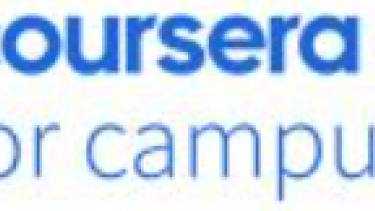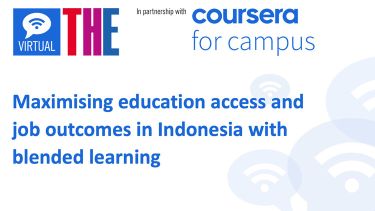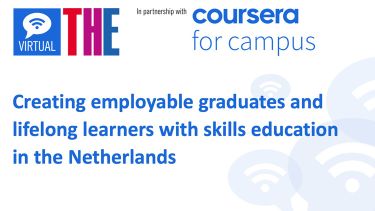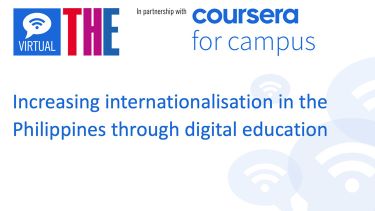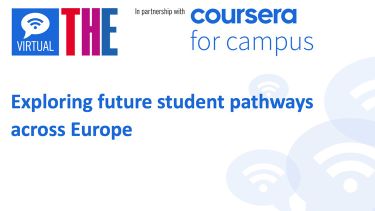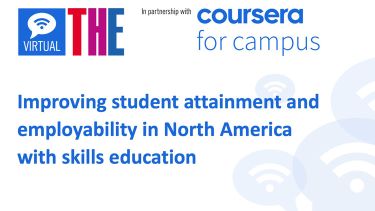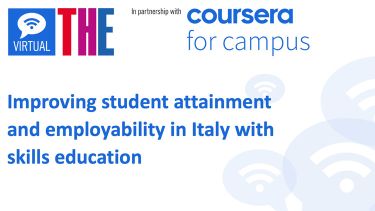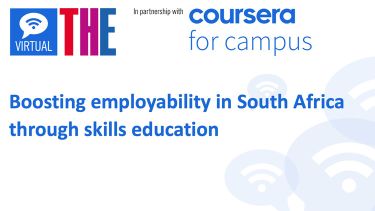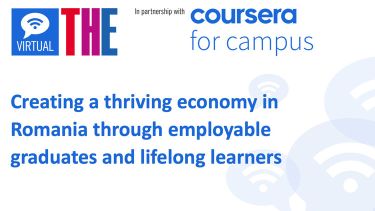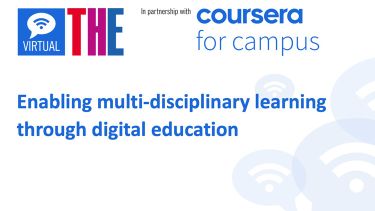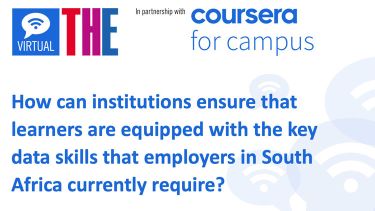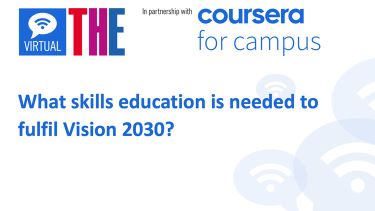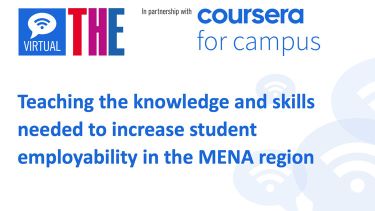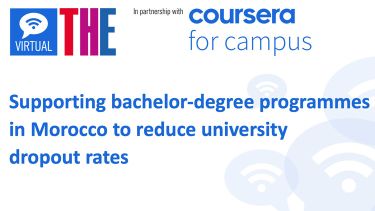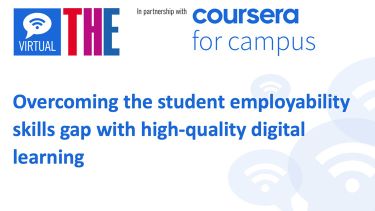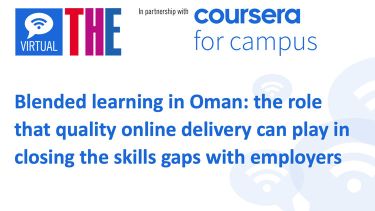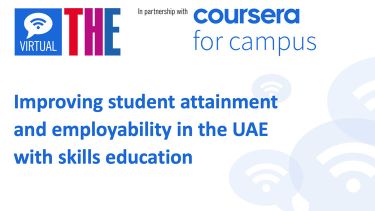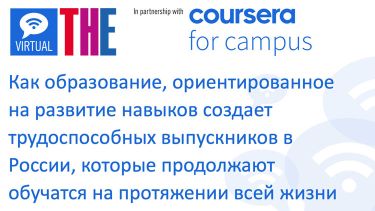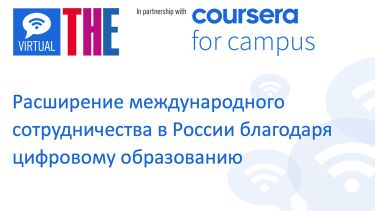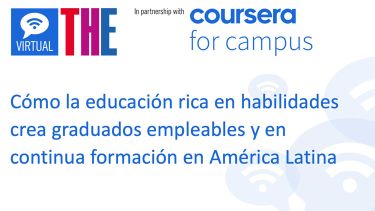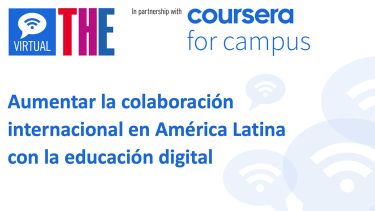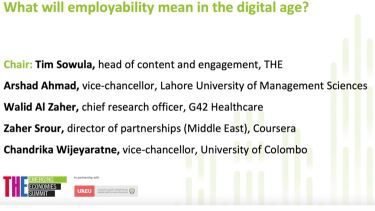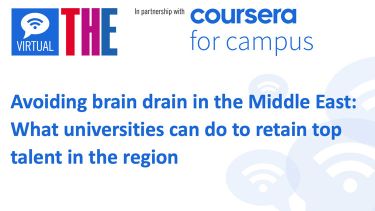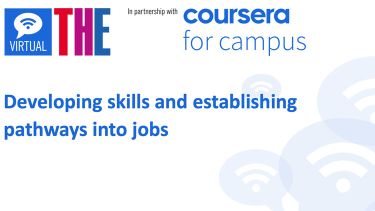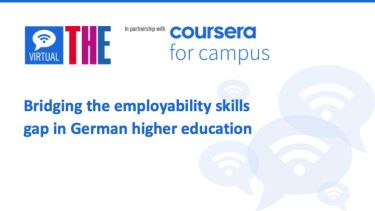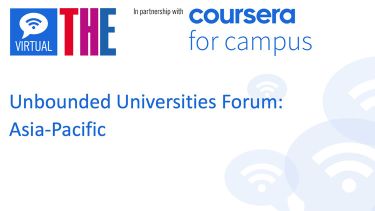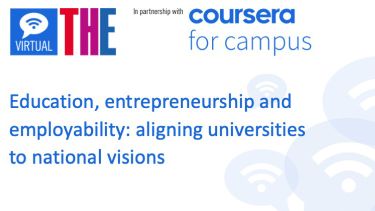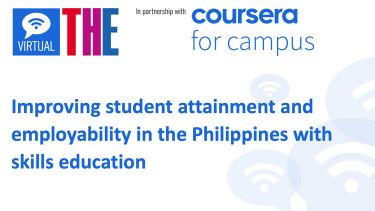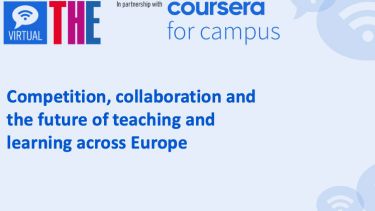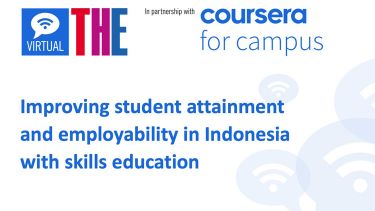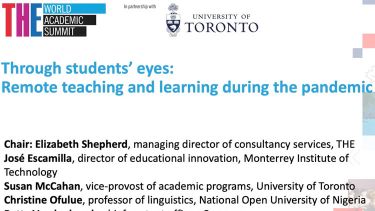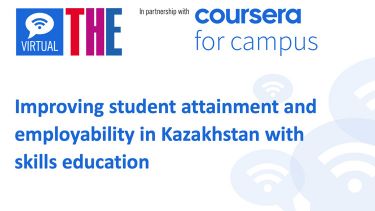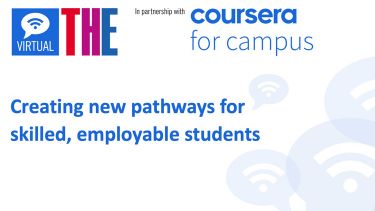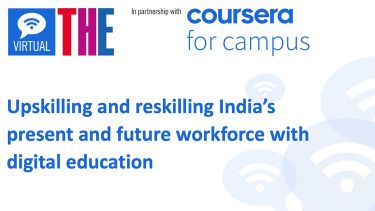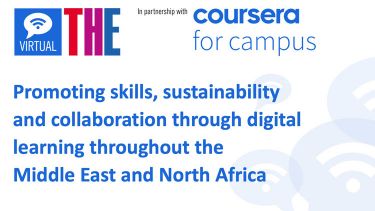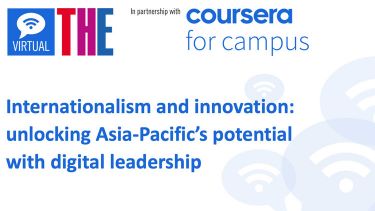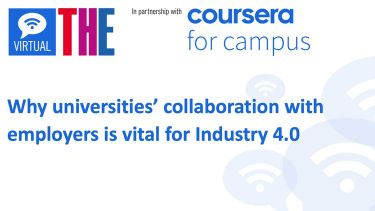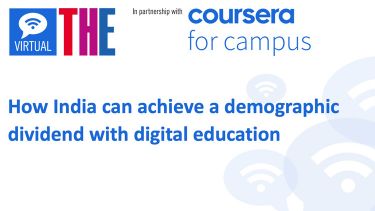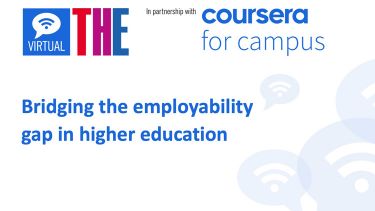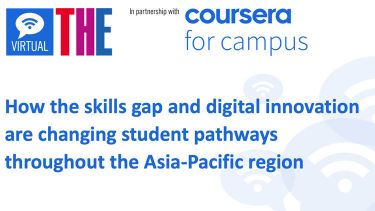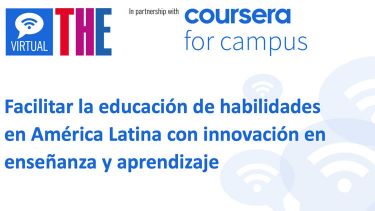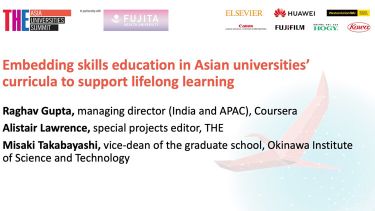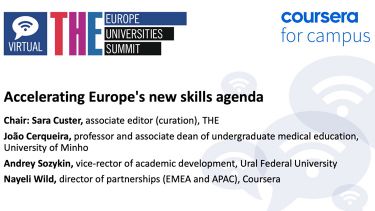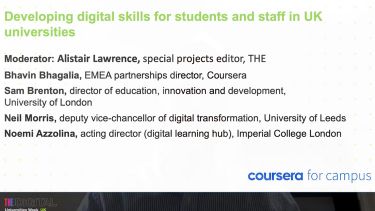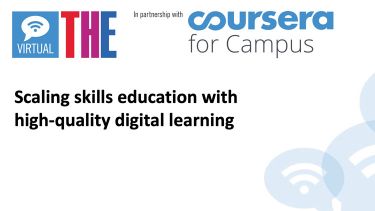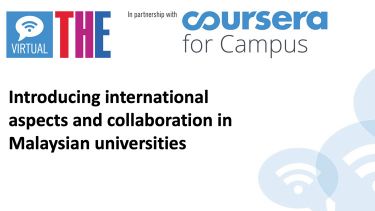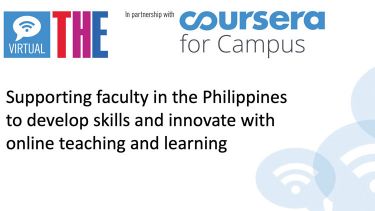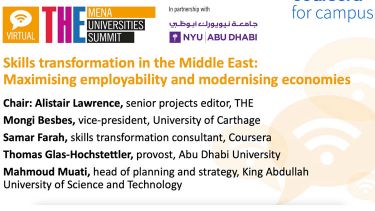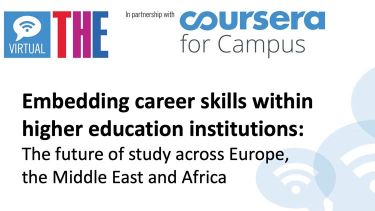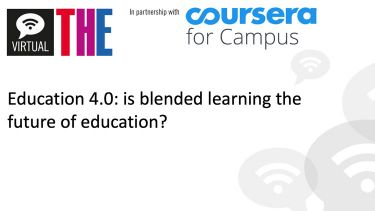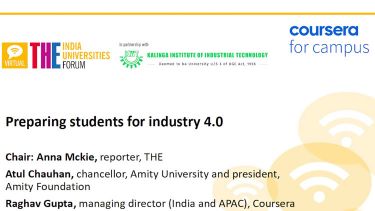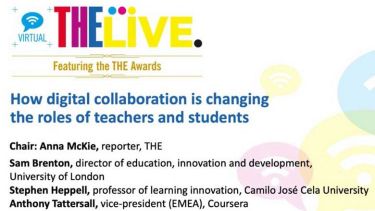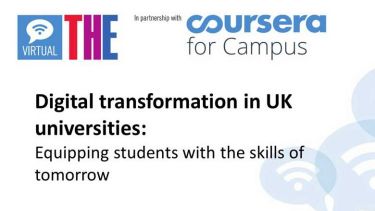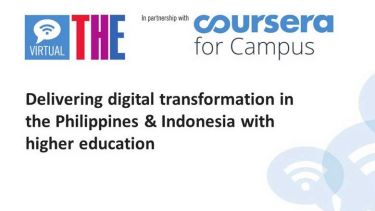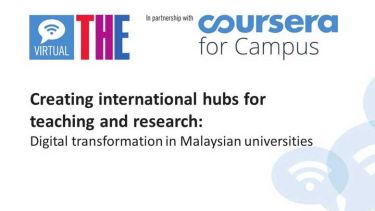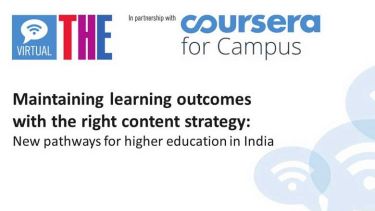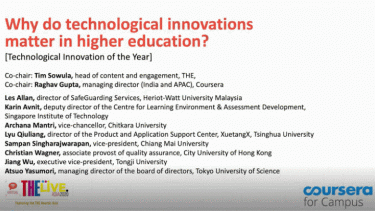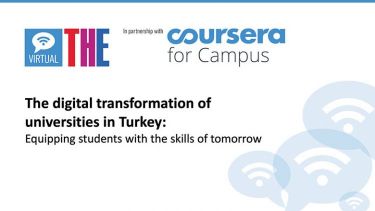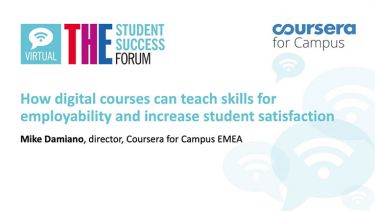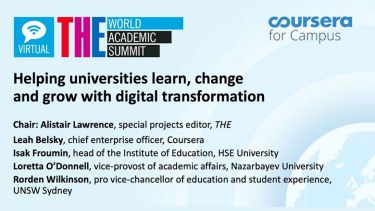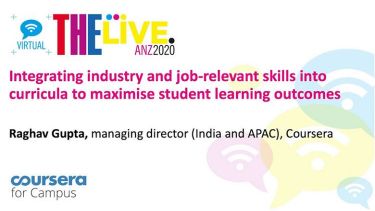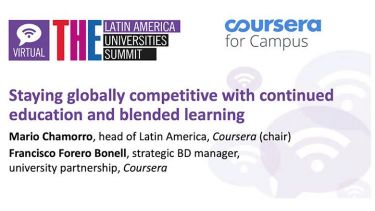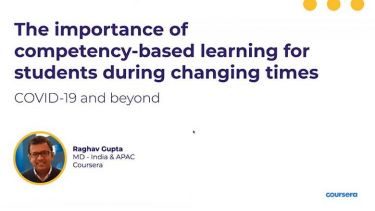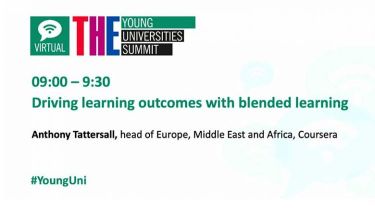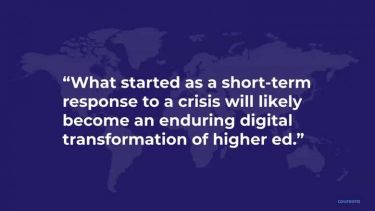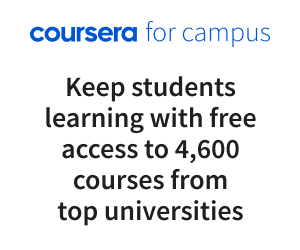
By leveraging partnerships with industry and peer institutions to create stackable learning content, universities can offer students innovative curricula that prepare them for the workplace
Universities are under increasing pressure to enhance graduate employability, an outcome that grows more challenging by the day. With the pace of technological disruption in the workplace challenging old models of curricula design, higher education institutions are looking for new learning pathways that address the skills gap and offer students greater choice.
Speaking at THE Digital Universities Week 2022, Sam Brenton, director of online education at the University of London, said the sector was in the process of working out how teaching could be unbundled and stacked. Online learning platforms such as Coursera offered tangible results.
“Where I am seeing the biggest impact is on things like on our degrees with Coursera where we have industry professional certificates as entry ramps into degrees,” Brenton said. “On our bachelor’s in computer science, we have learners who take the Google IT certificate and, if they succeed at that, they get automatic entry to the programme and the first module exempted.”
Sami Eltom, director of partnerships at Coursera, acknowledged there were no easy answers, with learner behaviour in flux, but he stressed collaboration was key to innovation.
Alan Spivey, assistant provost of learning and teaching at Imperial College London, believed such partnerships could create efficiencies and reinforce a university’s teaching mission. “It fits with this idea that universities are not these ivory towers,” he said. “It is about how you synthesise that and, if you can bring in some content of high quality from elsewhere, it is going to save you the investment in creating it, and you can still contextualise it locally.”
Angela Davies, academic lead for flexible learning pathways at the University of Manchester, noted that there were issues surrounding resources, particularly for the provision of in-demand subjects such as AI. But sourcing external content could prove cost and time effective.
John Kerr, learning innovation manager at the University of Glasgow, said academics should look at external content as they might do a journal article or learning materials from a YouTube video or TED Talk. Kerr advocated for an interdisciplinary approach, with universities using the lessons they have created to give more choice to students.
“I have heard it a lot today, about stackability – university to university, on Coursera or other platforms – but I have not heard much about that stackability internally and how we can do that for our students first before we sell it to everyone else,” said Kerr.
Find out more about Coursera.


